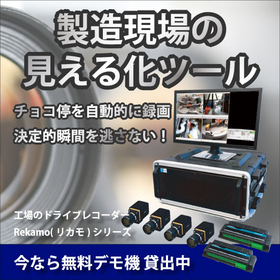Developed through joint research with the National Institute of Infectious Diseases. Achieves determination of the insertion site of foreign DNA in a short time, with high sensitivity and low cost.
The "RAISING method" is a technique for detecting the insertion sites of foreign DNA in the genome. It allows for rapid and reproducible measurement results with a small amount of DNA. It can identify insertion sites of viral genome insertions, viral vector insertions, searches for fusion genes that could be drug discovery targets, and off-target knock-ins in genome editing, among others. 【Features】 - Analysis can be arranged according to the purpose and target. - Multiple insertion sites can be detected in a single analysis. - High reproducibility of results is achieved through proprietary technology. 【Analysis Examples】 - HTLV-1 (Human T-cell Leukemia Virus) Clonality Analysis Leveraging the characteristics of the RAISING method, which can quickly detect with a small amount of DNA, we achieved high detection sensitivity even with a proviral load of 0.032%. - Off-target Detection of Knock-ins in Genome Editing For knock-in mice created using CRISPR/Cas, we conducted detection of knock-in efficiency and off-target sites by combining with NGS. *For details on examples and services, please refer to the materials available for download.
Inquire About This Product
basic information
■ We offer two service plans: "Sanger Sequencing" and "NGS" ▼ Sanger Sequencing Plan - Usage examples: Viral genomes, analysis of the clonality of fusion genes, etc. - Deliverables: Waveform data (ab1 files), sequence data (txt files) ▼ Next Generation Sequencing (NGS) Plan - Usage examples: Off-target detection of knock-ins using genome editing or viral vectors, etc. - Deliverables: Quality-value annotated Miseq output sequences (fastq files) 【Other Applied Technologies Introduction】 "Antibody Sequence Sequencing Analysis" By obtaining the variable sequences of antibodies, we support the production of recombinant antibodies. The variable sequences of mouse IgG genes expressed in hybridomas are amplified using the 5' RACE method or RT-PCR, followed by DNA cloning in E. coli and sequencing analysis. "Long Chain RNA Synthesis" We synthesize long chain RNA using in vitro transcription methods. Please provide the desired sequences for various applications such as RT-PCR amplification control RNA, gRNA for genome editing, small RNA, mRNA preparation, RNA aptamers, etc.
Price range
Delivery Time
Applications/Examples of results
【Usage Examples】 Determine the positions where foreign DNA is randomly inserted into the host genome, including the target location. ◆ Virus genome insertion sites ◆ Virus vector insertion sites ◆ Search for fusion genes that could be drug discovery targets ◆ Detection of off-target knock-ins in genome editing 【Analysis Examples】 ■ HTLV-1 Clonality Analysis ■ Detection of off-target knock-ins in genome editing 【Regarding Sample Requests】 Please provide purified genomic DNA at a concentration of 200 ng/μl or more, with a minimum volume of 10 μl per sample. *If the sample amount is small, please consult with us. *Quality checks and RNase treatment are mandatory. *For more details, please refer to the PDF document or feel free to contact us.
catalog(5)
Download All CatalogsNews about this product(3)
Company information
In recent years, advancements in molecular biology have led to remarkable progress in research such as the determination of the complete genome sequences of organisms and subsequent gene function analysis. Along with these technological advancements, molecular biological techniques such as nucleotide sequence analysis, real-time PCR, and DNA chips have become widely utilized in the field of food analysis. Since its establishment in 2001, Fasmak Co., Ltd. has been developing technologies for the "Japanese Standard Analysis Method" for genetically modified foods and food allergens in collaboration with related agencies of the Ministry of Agriculture, Forestry and Fisheries and the Ministry of Health, Labour and Welfare. The developed testing technologies are provided not only in Japan but also in the United States, China, and other countries. Additionally, Fasmak has been actively engaged in international standardization activities for "food inspection methods using molecular biological techniques" since its establishment, and its technical capabilities are internationally recognized. Furthermore, in partnership with Eurofins Scientific, one of the world's largest testing companies, Fasmak is advancing the introduction of the high technical capabilities possessed by the Eurofins Group. Moving forward, Fasmak will continue to provide world-class new testing technologies to everyone.




















